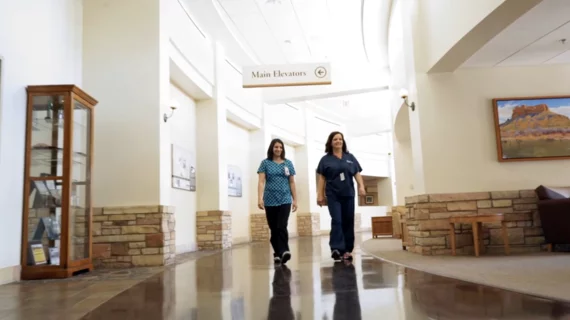Nursing job gap expected to reach 2.1 million
The healthcare industry is expected to have a nursing job gap of 2.1 million jobs over the next two to three years, according to recent research from the Josh Bersin Company, a research and advisory firm focused on HR and workforce strategies.
The findings highlight an alarming trend in the healthcare industry, as the COVID-19 pandemic has strained the healthcare workforce and accelerated planned departures from the industry.
The nursing job gap is expected due to mass resignations, as well as impending retirements, a shortage of new nurses entering the field and a rapidly aging population needing more care. The 2.1 million figure comes from the Global Workforce Intelligence (GWI) Project that also found the gap in nursing may only register as 200,000, but that may not show the whole story. Market factors will make that gap 2.1 million by 2025, the study found.
This huge gap should prompt healthcare organizations to review their recruiting, retaining and reskilling practices, as the standard approach to these actions will leave 800,000 critical roles unfilled.
"The findings are groundbreaking in their scale and in their unequivocal implications. If healthcare organizations continue doing what they've always done, they simply won't be able to close the current resource gap,” Josh Bersin, global HR research analyst and CEO of The Josh Bersin Company, said in a statement. “They need to change the work itself, redesign employment models, and rethink how people are deployed to opportunities. And, rather than implement point technology systems to help process existing workloads, there needs to be more ground-level reinvention of healthcare process and tasks and smarter use of digital alternatives to automate or augment more of the everyday work of key people."
To address the job gap, technological automation, human augmentation, and the reengineering of clinical delivery could reduce the demand for nursing overall. Software development over individual tech solutions are also leading strategies among high-performing healthcare organizations. According to the GWI report, advanced healthcare systems need 20% fewer nurses and administrative roles to deliver patient care.
Unfortunately, most healthcare organizations do not have the internal structure or expertise to redesign work, while up to 1 million nursing jobs could be streamlined through automation, technology enablement or off-loading to non-clinical workers.
"The labor shortage is a real crisis for healthcare. We can't address it if we don't think and act fundamentally differently,” Greg Till, chief people officer of Providence Health System, said in a statement. “Beyond attracting, developing and retaining talent in new ways, we need to fundamentally transform the work. This means deconstructing every role and operational process to its lowest level to determine how we might improve our caregivers' experience while optimizing capacity, cost, quality, and our patients' experience. It requires the digitization of simple, automatable tasks and the use of AI to better predict demand and manage talent deployment. And, it compels us to think about diversifying sources of talent to expand the available healthcare workforce.”

